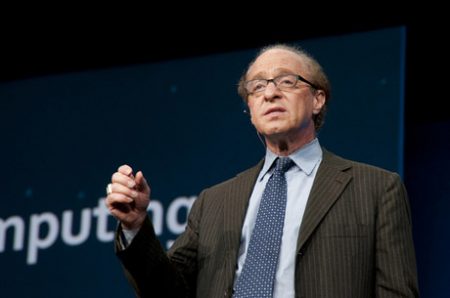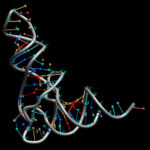November 7, 2017 – In the past two weeks, I’ve watched two interviews given by Ray Kurzweil, Co-founder and Chancellor of Singularity University, and Director of Engineering at Google. Kurzweil, when looked up on Google Search has the following ascribed to him. “He is a formidable figure in futuristic thinking, as he is estimated to have an 86% accuracy rate for his predictions about the future. the future he envisions is one marked by decentralization of both the physical and mental.” And they’re not just saying that because he works for Google. This man is a genuine seer of the future to which the interviews attest.
About those interviews, the first was conducted by Peter Diamandis of XPrize fame. The second was conducted in front of a large news and media audience at the Council on Foreign Relations meeting last Friday, November 3rd. In both Kurzweil covers ideas fueled by technological innovation that raise ethical questions for humanity in this century.
I met Ray Kurzweil back in the 1990s, first at a computer show in Las Vegas, and later at a voice recognition conference. At the time Kurzweil was a prolific inventor of technologies including a music synthesizer and voice recognition technology. I even bought one of his keyboards to help me compose and score music digitally at home. My impression at the time was that he was both thoughtful and brilliant and that he had a grasp of where technology was taking us.
Today Kurzweil sees the progress of technological innovation much the way he did back then with strong convictions that we will transcend our biology because of it and won’t even know it when the moment arrives because it will be as natural to us as picking up a knife and fork.
In his Diamandis interview, Kurzweil talks about how technology is enhancing us. He describes our species as the only one on the planet that can change who we are, from our mastery of fire, and stone tools, to our development of technologies that have become extensions of us. No other species on this planet has “evolved” this way.
Technology, states Kurzweil, has allowed us to alter our environment and ourselves. We have invented drugs and medical procedures to help fight disease and repair our damaged bodies. We replace hips, knees, and shoulders with prosthetics that are serviceable alternatives to our natural selves. We have extended our natural lifespans from less than 30 years to well over 80 just in a little more than a century. So we already are a synthesis of nature and technology.
Kurzweil asks the question others ask him, “Do I really want to become part machine?” His response is “You’re not even going to notice it because it’s going to be a sensible thing to do.” Today we ingest aspirin. Tomorrow we’ll swallow encapsulated nanobots that will repair cellular damage, and even connect our brains to the cloud. In time, just like the medicine we ingest to cure us of an illness, we’ll gladly accept what machines can do to make us “become smarter and more profound, more beautiful, more creative, more musical, funnier, sexier.”
Kurzweil has some interesting observations about sexual identity stating, “In virtual reality, you can be someone else. Right now, actually changing your gender in real reality is a pretty significant, profound process, but you could do it in virtual reality much more easily and you can be someone else. A couple could become each other and discover their relationship from the other’s perspective.”
Kurzweil also speculates on longevity and talks about “longevity escape velocity.”
What does he mean?
Escape velocity refers to a point in the near future when our science and technology will add more than a year to our lifespan for every year we remain alive. He predicts we will reach escape velocity in 10 to 12 years when biotechnology innovations will overtake medicine as practised today. And when nanobots integrate with our immune systems to end cancer and repair us when damaged we will achieve longevity escape velocity. So Kurzweil encourages all of us to wear our seatbelts until self-driving cars become a reality. Because by then, he says staying alive beyond the century mark will become the norm. Our productive lives will extend 60, 70 and 80 years beyond today’s retirement age, and social security will be turned on its head. I don’t know about you but I want to stick around to see if he is right.
















